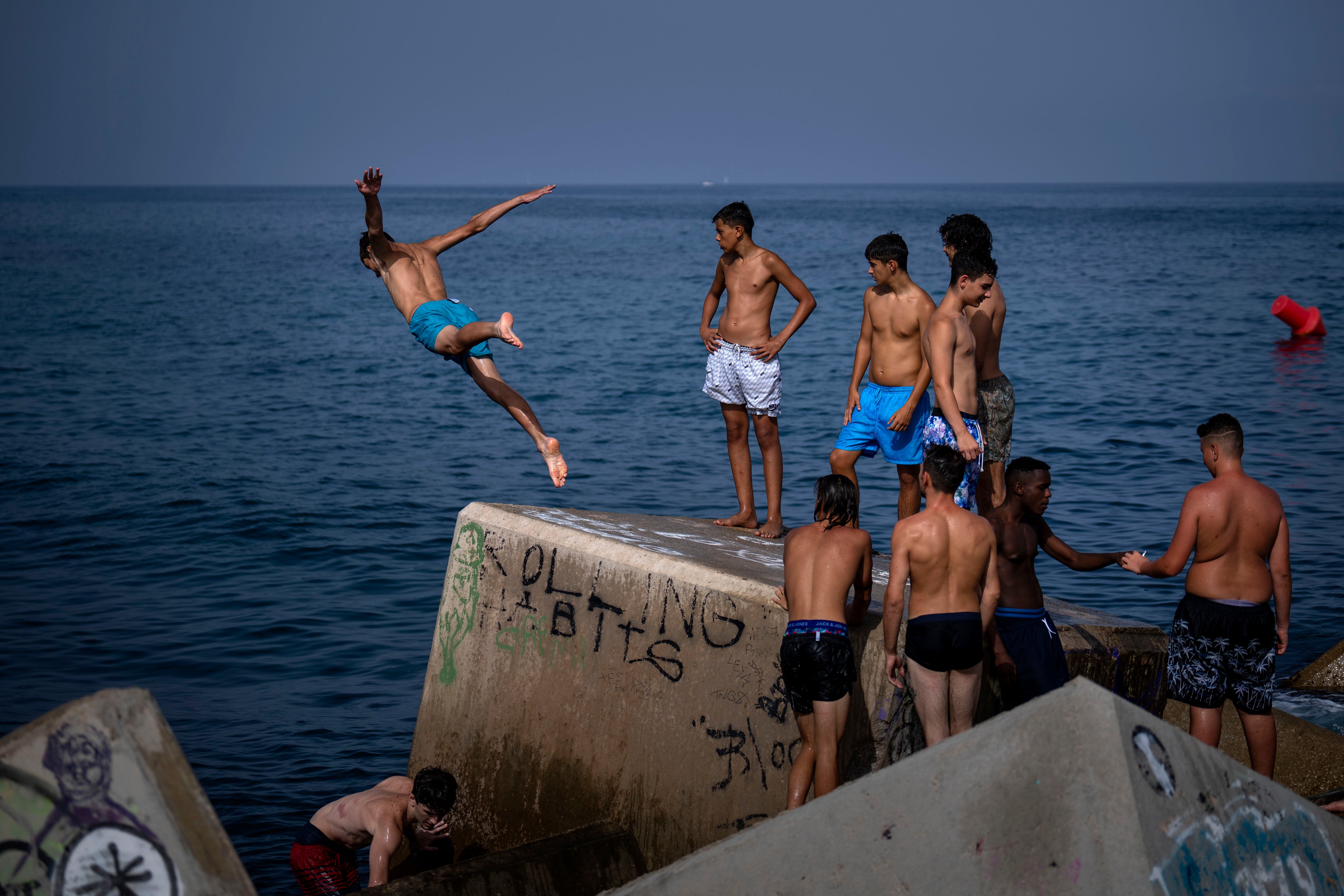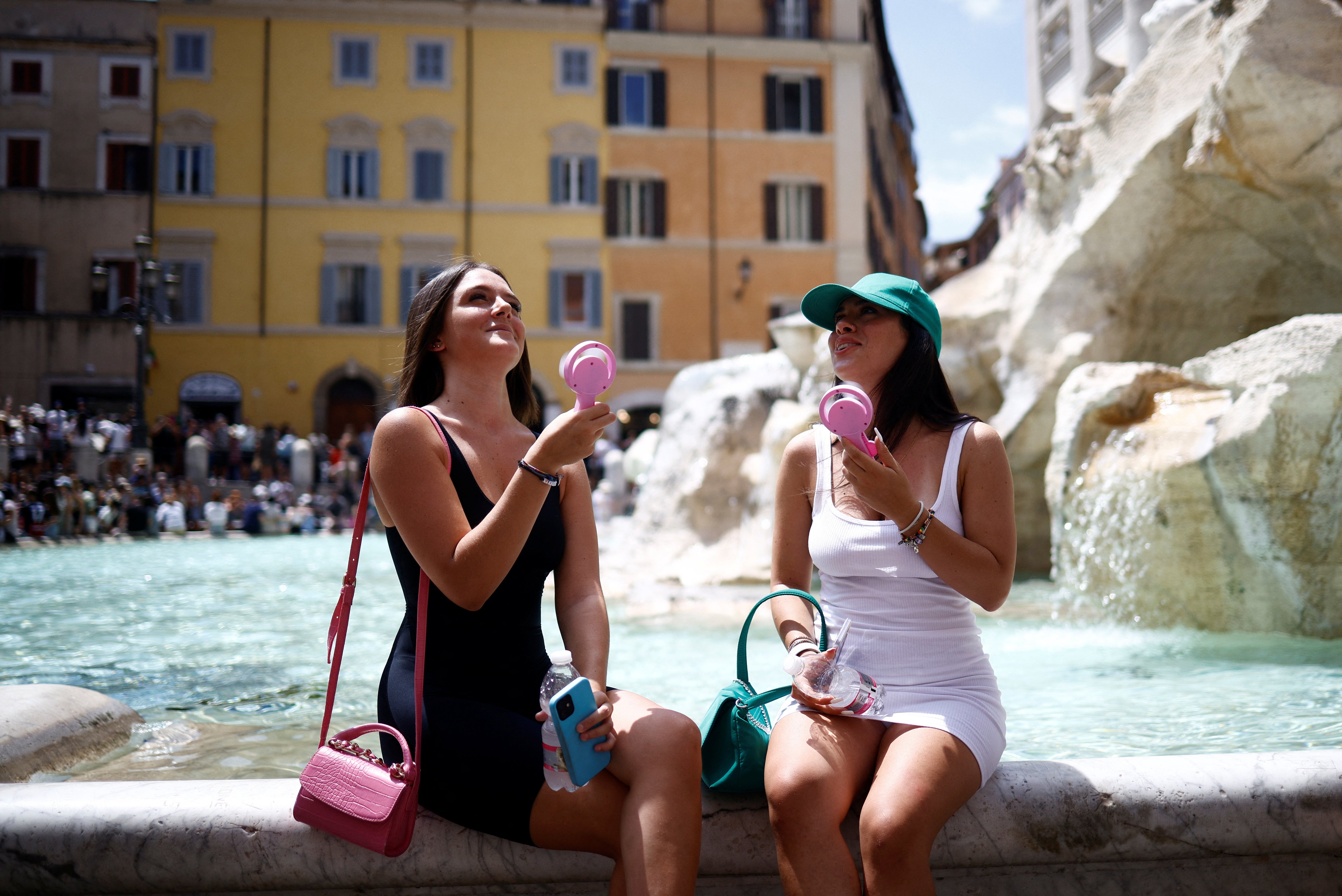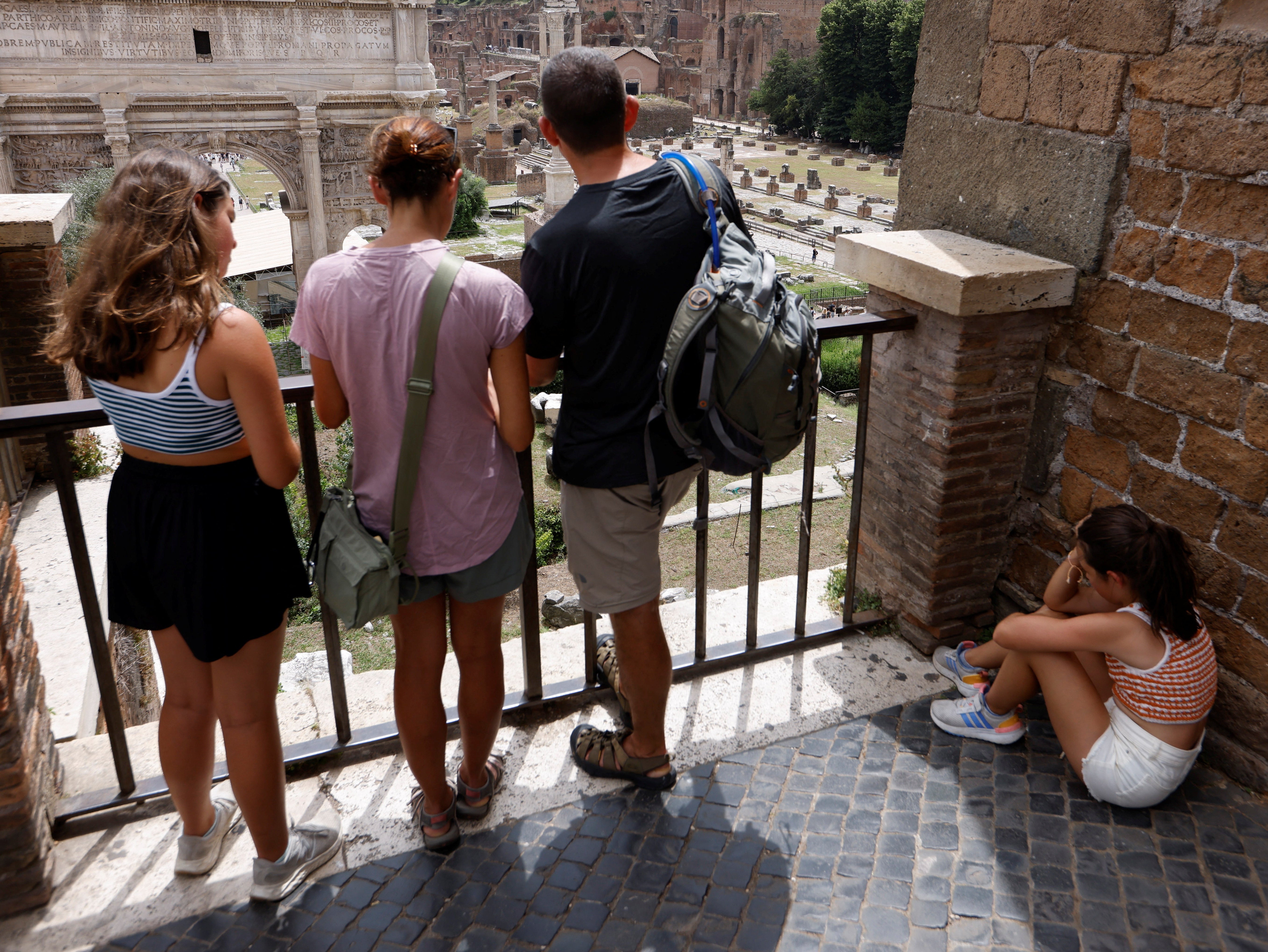Heatwave across Spain and Italy leaves Brits abroad sweltering: ‘I don’t cope well at all’
As temperatures top 40C, Britons are doing whatever they can to stay cool. Graham Keeley reports from Madrid on the extreme heat across Europe


I came here for the sun after rainy Britain but this is a bit much for me,” says Peter Stevens, 73, a retired project manager from London who is staying near Barcelona.
Spain is sweltering in an intense heatwave affecting much of southern and eastern Europe, including tourist hotspots such as Italy and Greece, with the thermometer reaching beyond 40C (104F). Just like Peter, thousands of holidaymakers escaping this weekend’s wet and windy weather in Britain find themselves roasting under a high-pressure, high-temperature front currently sitting across the continent.
The heatwave, named Cerberus after the three-headed monster that features in Dante’s Inferno, has prompted warnings for both tourists and locals to take care, particularly when temperatures reach their peak in the middle of the day. “I am getting headaches after a few hours on the beach and must go home to the hotel,” Peter says.
Zoo animals in Madrid were fed fruit ice lollipops and chunks of frozen food and forest fire patrols were increased in many parts of Spain, while tourists were told to drink at least two litres of water a day and to check on vulnerable people like the elderly, young children or those with breathing problems. Temperatures have already reached 45C on Monday in the village of Loja, near Granada, while some areas were set to match that, and even potentially push even higher on Friday and into the weekend.
Britons who live in Spain and Italy are also struggling to cope with the searing heat. Nick Lloyd, who runs Spanish civil war tours in Barcelona, said: “I am finding it difficult [during our tours]. I find I am slurring my words, mixing up the word order, missing out sentences, forgetting stuff,” says Lloyd, who is from Southport but has lived in Spain for 32 years.

Jesus Pozuelo, a guide in the Tablas de Daimiel, a protected natural park in Castilla la Mancha, central Spain, cancelled all tours while the extreme temperatures last. “With this heat it is not a good idea to take people out in the middle of the day on a walking tour in case someone faints.”
Christian Machowski, who lives in Malaga, on the Costa del Sol, says temperatures reached 42C in the southern Spanish city on Thursday. The 56-year-old, who runs a company that organises travel for football teams in the Champions League, says the heat is “confining” him to his house from mid-morning to early evening. “That can be a little tiring and restrictive,” he says.
He adds that the weather has been the talk of the town, for better or worse. “They issued a red alert for the Costa del Sol. You would think people who live here get used to this but they don’t. They knew this was coming for days but they didn’t talk about anything else,” he says.
In the popular, white-walled town of Coin, near Malaga, the mayor ordered people to clear the streets by 4pm in the afternoon. “We recommend that residents do not go out on the streets because of the extreme temperatures,” said Francisco Santos. Lloyd, the tour guide in Barcelona, has noticed that there “seems to be less people in the streets” in general as people try and avoid the high temperatures.

Given how big the tourism industry is for Spain – with it accounting for about 12 per cent of GDP each year – analysts suggest the high temperatures could have a detrimental impact. “Many observers are watching the thermometer closely because of the heatwave which is affecting the whole of Spain,” Cyrus de la Rubia, chief economist of Hamburg Commercial Bank, told eldiario.es, a Spanish newspaper. “Depending on how long this lasts there may be economic costs.”
This is expected to be a bumper year for bookings from Britain and other countries. Some 18 million Britons travelled to Spain in 2019, the last year before the pandemic.
In Italy, Zoe Adams Green, 46, a translator based in Rome who originally comes from Tamworth, Staffordshire, has resorted to using blocks of ice to keep her cool while she worked.
“I don’t cope with the heat very well at all. We have the air-conditioning but being aware of the climate crisis and with the cost of electricity, I try to use it as little as possible,” she says. “Yesterday, I resorted to a frozen bottle of water under each foot whilst I was working.”
Carol Lewis has been forced into staying at home in Umbria, central Italy. “We haven’t got air-conditioning. Not sure we could afford to run it these days, although the cost of electricity has dropped a bit these days,” said Lewis, 68, a retired IT manager who is originally from Whitley Bay in northeastern England but moved to Italy 13 years ago.

“We have a pool which is a boon, but the water temperature is around 30C which means it is like stepping into a tepid bath. We keep windows closed during the day. Thankfully, the temperatures are dropping a little at night.” Although areas of Spain and Italy are still experiencing night-time temperatures nudging 25C.
British tourists visiting hotspots across Europe were warned to follow the example of locals. An Abta spokesman said: “Leave the beach at midday or early afternoon when the sun is at its most powerful, to have a long, leisurely alfresco lunch in the shade. Holidaymakers have the option of cooling off in the pool or sea and don’t forget to put on the air conditioning or turn on the fan at night to ensure you have a cool, restful sleep.”
In Milan there have been repeated power cuts as demand for electricity soars. “They are having daily blackouts due to the increasing use of air-conditioning units. I wonder how we will cope if we all buy electric cars,” said Federica Zanini, an Italian journalist. The country’s health ministry warned residents of 15 cities to avoid being out in the midday heat due to extreme temperatures. Temperatures are expected to reach 12C above average in some areas this weekend.
And there are more high temperatures expected. Italian forecasters have said another heatwave named Charon, after the ferryman of Hades, will push temperatures back up to 43C in Rome and as high as 47C in Sardinia and Sicily next week. While Spain’s state weather agency said the second heatwave is expected to hit the country on Sunday.






Join our commenting forum
Join thought-provoking conversations, follow other Independent readers and see their replies
Comments